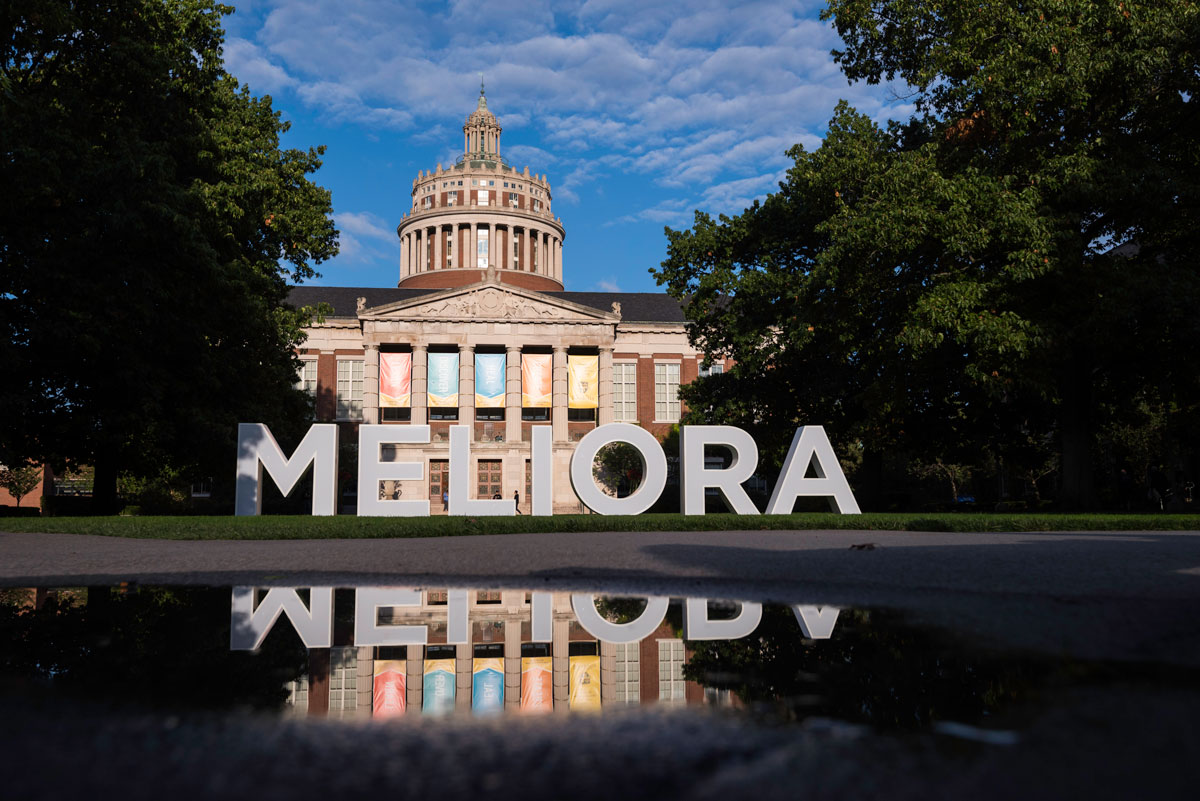Alumni Census - University of Rochester

Alumni Census - University of Rochester
Located in Rochester, New York, The University of Rochester is a medium-sized (12,000+ students) private university that prides itself n their focus on research and “long tradition of breaking boundaries.” The sense of roots in pushing the boundaries of education come out in the statement on their website: “always pushing and questioning, learning and unlearning.”
The Challenge
Like most Universities around the U.S., The University of Rochester’s Office of Advancement had a desire to do better outreach to alumni, but found that the demographic data they collected wasn’t robust enough to do appropriate and nuanced engagement. They struggled with the questions around whether their engagement strategies worked universally or with one particular racial, gender identity, or religious group. They also weren’t certain about whether their messaging was reaching everyone or just a few.
Beyond demographic data, The University of Rochester wanted to learn more about the interests and activities of each alumni. Understanding an alumni’s interest areas allows for targeted messaging about specific programs such as the arts or research or service-learning that might lead an alumni to donate. That’s where the data and updating data gathering strategies comes in.
What We Did
To approach this challenge, The Tzedakah Lab Director, Noah D. Drezner, took the following steps in partnership with The University of Rochester to create a more robust data collection strategy:
- Drafted and finalized the updated survey. This involved a great deal of conversation with the Advancement team to understand what data would be important to collect, how knowing that information would guide their work, how the data would be used, and understanding the alumni with whom they wanted to engage more.
- Helped advocate for updated survey questions with the University legal council. Noah worked with the Advancement Office and University legal council to ensure that all of the questions, the way they were worded, and how they were included in the survey met legal standards.
- Developed Educational tools for the Office of Advancement staff. To ensure that the entire Advancement Team understood the purpose of the Alumni Census and were able to advocate for participation with their prospects and volunteers, Noah created educational tools for the staff.
- Assist with database build-out. The Tzedakah Lab worked with the University’s internal technology team to integrate the survey into the database that was usable by the standards of the University.
- Advised on the marketing campaign linked to the survey. Strong marketing campaigns are key to ensuring a large portion of the alumni population complete the survey. The Tzedakah Lab worked with the Office of Advancement to strategize about how to approach the campaign. This involved discussing the modes of communication with alumni, building in regular reminders, and communicating about continued outreach in the short-, medium-, and long-term. Further, Noah worked with his partners in UR Advancement to create educational tools so that alumni understood the purpose of the Census and how it was going to be used to improve their experience.
- Advised on user-friendliness through adapting technology. Technology and using it to their advantage is key to making these surveys as easy for alumni as possible giving them added incentive to complete it. We advised on how to incorporate pre-filled data that the University already had (e.g., name, email, address, etc.) and offered the option to change that information as the alumnus/na/x completed the form. We created strategies to give each alumni a unique URL so that their information popped up immediately whether they clicked on it in an email or filled in a unique code from a mailed card. And especially, we worked with staff members about how to work with alumni who called in wanting assistance with the process.
- Advise on opportunities for use of the data. Once the data is collected, The Tzedakah Lab advised on how the data can and should be used and ways that the Office of Advancement can refine their outreach now that they have more data at their fingertips.
Impact
The initial survey was launched to alumni in North America in Fall of 2019. Based on the University's historical email open rates and engagement, we set a stretch goal for the first wave of 5-10% participation (approximately 10,000 alumni). Within two months, we achieved 12% participation, or over 12,100 alumni completing the survey! Perhaps, even more impressive is that nearly two-thirds (64%) of those who participated in the survey were not considered “engaged” alumni. Meaning this was the first time, or first time in multiple years, that those alumni participated in any alumni activity.
With Covid-19, the outreach efforts outside of North America were delayed. But the initial data gathering process has resulted in some new information despite the slower than expected start.
So far the University has used the data to:
- Develop Black, LGBTQ+, and First-Generation Networks
- Invite Trans-women to join the Women’s Network
- Build interest codes for different identity information to develop inclusive distribution lists for communication and outreach; this ensures allies are part of communication and strategy
- Develop a method to make sure transgender alumnx have accurate and affirming diplomas
- Assess their volunteer based national and local regions where there are a concentrated number of alumni. They’re looking into whether the demographics of volunteers is reflective of the race and gender information that the Alumni Census elicited. What they learn can help them more fully engage with alumni in a more inclusive way to hopefully result in volunteers who represent the demographics of those in each region.
Beyond the data, UR has received positive feedback and excitement around the newly created networks for Black, LGBTQ+, and First-Gen and how the new leaders were brought on board for those initiatives.
We expect to see more from the work they’re doing with the data as they take deeper steps into navigating what it all means.